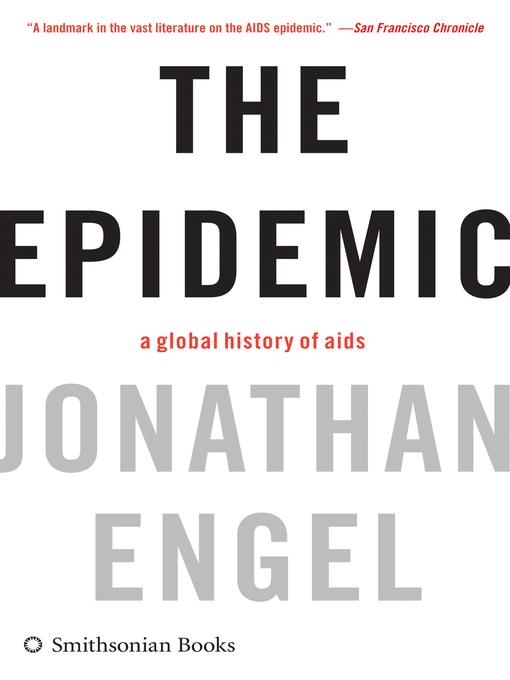
The Epidemic
A Global History of AIDS
کتاب های مرتبط
- اطلاعات
- نقد و بررسی
- دیدگاه کاربران
نقد و بررسی

Starred review from September 4, 2006
Perceptive and concise, but also conversational and impeccably thorough, Engel chronicles humanity's relationship, from the first appearance of the new pathogen to the colossal struggles of today's third-world countries, with a virus that "has proven itself a formidable foe, evading vaccines and antidotes, while mocking our own imprudence, and self-indulgence." Covering the scientific, sexual, political, economic and educational ramifications of the AIDS crisis, Engel pulls no punches in describing large- and small-scale efforts to define, pursue, avoid and deny the virulent plague. After presenting the viral onslaught's first, overlooked victims, he tracks the disease's progression into and throughout the gay community and circles of intravenous drug-users, then into more mainstream populations. Touring bathhouses in New York, heroin-shooting galleries in Burma, and brothels in Bangkok and Zimbabwe, Engel describes how global centers of disease had to adapt-socially, civilly and medically-to face a dangerous new world paradigm. Moreover, this study explores evolving treatments, resources and the lack thereof throughout the world, and how the political, religious, and moral climates of any given culture influence the medical community's response. Looking forward, Engel demonstrates how the disease continues to challenge, and what societal changes are crucial to controlling viral progression. In his conclusion that AIDS "has exposed much of what is worst in human nature," Engel sums up the importance of his work, which reveals more than the history and character of a global crisis, but, in the world's response to such a crisis, the limitations and potential of humankind.

Starred review from October 2, 2006
Perceptive and concise, but also conversational and impeccably thorough, Engel chronicles humanity's relationship, from the first appearance of the new pathogen to the colossal struggles of today's third-world countries, with a virus that "has proven itself a formidable foe, evading vaccines and antidotes, while mocking our own imprudence, and self-indulgence." Covering the scientific, sexual, political, economic and educational ramifications of the AIDS crisis, Engel pulls no punches in describing large- and small-scale efforts to define, pursue, avoid and deny the virulent plague. After presenting the viral onslaught's first, overlooked victims, he tracks the disease's progression into and throughout the gay community and circles of intravenous drug-users, then into more mainstream populations. Touring bathhouses in New York, heroin-shooting galleries in Burma, and brothels in Bangkok and Zimbabwe, Engel describes how global centers of disease had to adapt-socially, civilly and medically-to face a dangerous new world paradigm. Moreover, this study explores evolving treatments, resources and the lack thereof throughout the world, and how the political, religious, and moral climates of any given culture influence the medical community's response. Looking forward, Engel demonstrates how the disease continues to challenge, and what societal changes are crucial to controlling viral progression. In his conclusion that AIDS "has exposed much of what is worst in human nature," Engel sums up the importance of his work, which reveals more than the history and character of a global crisis, but, in the world's response to such a crisis, the limitations and potential of humankind.
Copyright 2006 Library Journal, LLC Used with permission.

























دیدگاه کاربران